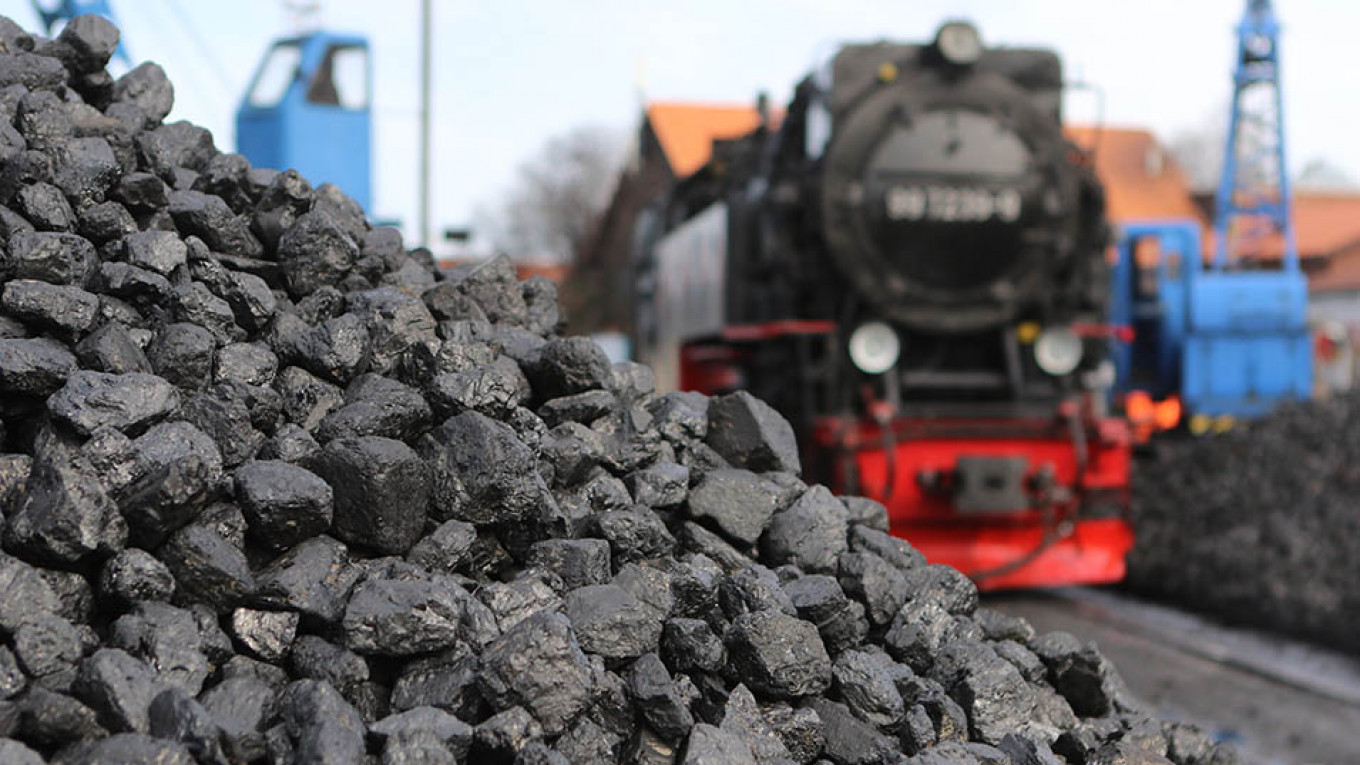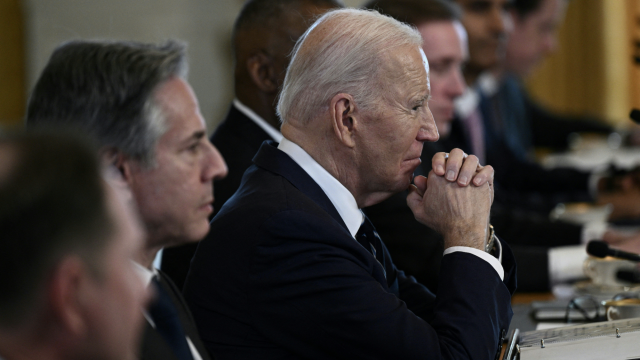Polish miners blocked trains carrying coal to a power plant in the southern town of Laziska Gorne on Friday in protest against coal imports from Russia.
Poland generates most of its electricity from coal, but domestic coal production has been falling in recent years due to cost savings and geological problems, which prompted higher imports, mostly from Russia.
Some of Poland's biggest coal users, mostly state-run energy groups, signed long-term deals for coal imports from Russia in 2017-2018 fearing the main domestic coal producer, state-run PGG would be unable to meet demand, unions say.
Unions contend such long-term contracts are now curbing local production, putting jobs at risk.
Around 100 miners joined Friday's protest, wading onto rail tracks outside Laziska near the Czech border and forcing trains, which unions said were delivering coal from Russia, to stop.
"We protest against the import of coal by Poland's energy companies, especially from buying it from Russia," said Patryk Kosela, a spokesman at Sierpien 80, the union that organized the protest.
Unions say higher imports together with falling demand amid a mild winter have to lead to a jump in coal stockpiles, threatening normal operations of Poland's coal mines.
A spokeswoman at energy group Tauron, which owns the Laziska power plant, said the unit does not use imported coal and the protest would not affect the plant's operations.
PGE was not immediately available to comment.
The Polish government has introduced a special storage system whereby coal stockpiles at mines can be moved so that the mines can operate normally.
In 2018 Poland imported almost 20 million tonnes of coal. Between January and September 2019 imports totaled 12.3 million tonnes, including 8 million from Russia. Critics say this was at odds with the ruling Law and Justice (PiS) party's aim to reduce Poland's reliance on Russian oil and gas.
Poland is also under pressure from the European Commission to reduce its reliance on coal.
A Message from The Moscow Times:
Dear readers,
We are facing unprecedented challenges. Russia's Prosecutor General's Office has designated The Moscow Times as an "undesirable" organization, criminalizing our work and putting our staff at risk of prosecution. This follows our earlier unjust labeling as a "foreign agent."
These actions are direct attempts to silence independent journalism in Russia. The authorities claim our work "discredits the decisions of the Russian leadership." We see things differently: we strive to provide accurate, unbiased reporting on Russia.
We, the journalists of The Moscow Times, refuse to be silenced. But to continue our work, we need your help.
Your support, no matter how small, makes a world of difference. If you can, please support us monthly starting from just $2. It's quick to set up, and every contribution makes a significant impact.
By supporting The Moscow Times, you're defending open, independent journalism in the face of repression. Thank you for standing with us.
Remind me later.







